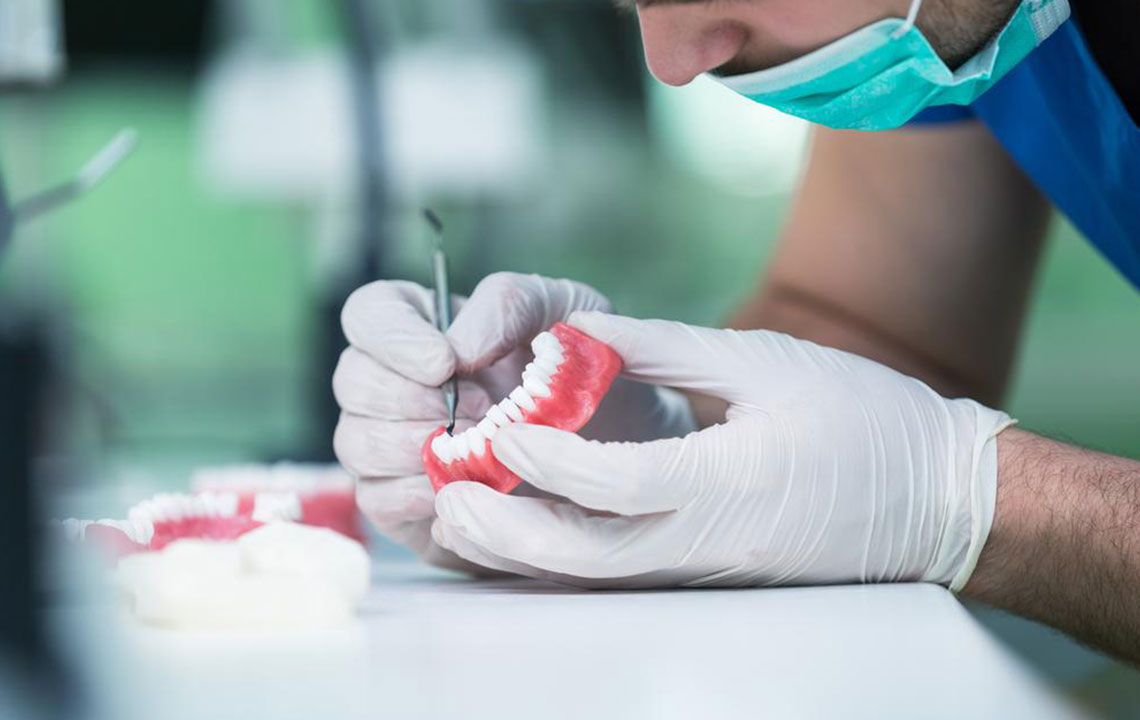Comprehensive Guide to Maintaining Your Dentures for Optimal Oral Health
Proper denture maintenance is vital for oral health and prosthetic longevity. This comprehensive guide covers daily cleaning routines, handling tips, and when to seek professional help, ensuring your dentures stay in excellent condition and your smile remains radiant. Regular care prevents infections, discomfort, and damage, allowing you to enjoy a confident, healthy life with your dentures.

Comprehensive Guide to Maintaining Your Dentures for Optimal Oral Health
Proper denture maintenance is essential not only for ensuring the longevity of your prosthetic teeth but also for safeguarding your overall oral health. Dentures are vital for restoring functionality and aesthetics for those with missing teeth, but their benefits can only be fully realized through diligent care and proper handling from day one. In this comprehensive guide, we will explore essential tips and strategies to keep your dentures in top condition, prevent infections, and preserve your beautiful smile for years to come.
Understanding the Importance of Denture Care
Many individuals underestimate the significance of routine maintenance for their dentures. Poor hygiene and mishandling can lead to issues such as bad breath, infections, gum irritation, and even damage to the prosthetic devices. Therefore, establishing effective daily habits is crucial. Proper care not only maintains the appearance and function of your dentures but also supports your overall health by preventing oral diseases linked to poor hygiene.
Daily Denture Cleaning Procedures
Rinse After Every Meal—It is fundamental to remove your dentures and rinse them thoroughly after each meal. This simple step helps eliminate loose food particles, preventing plaque buildup and bacterial growth. Use lukewarm water to wash away any debris gently; avoid hot water, which can warp the material of the dentures.
Handle with Care—Always handle your dentures carefully during cleaning to prevent accidental drops or damage. When removing or inserting them, do so over a soft surface or towel to cushion any accidental falls. Treat your dentures gently, especially around the edges and clasps, to prevent fractures or cracks.
Clean with Appropriate Tools and Products—Use a soft-bristled denture brush and non-abrasive denture cleaner or mild soap. Avoid using regular toothpaste, which can be abrasive and damage the surface of the dentures. Brush all surfaces thoroughly, including the fitting surfaces that contact your gums and palate.
Overnight Soaking—To keep your dentures moist and free from bacteria, soak them in a cleaning solution or plain water overnight. This step helps maintain their shape and prevents them from drying out or becoming brittle. Before reinserting, rinse thoroughly to remove any chemical residues.
Maintaining Oral Hygiene
Cleaning your dentures is only part of oral health maintenance. It is equally important to keep your gums, tongue, and palate clean. Use a soft-bristled toothbrush or gauze to gently brush your gums and tongue daily. This helps stimulate circulation and remove plaque, significantly reducing the risk of infections such as stomatitis or candidiasis.
In addition to brushing, regular dental checkups are indispensable. Your dentist can evaluate the fit of your dentures, check for any signs of oral disease, and perform necessary adjustments or repairs. Proper fit ensures comfort, speech clarity, and proper chewing function, preventing sore spots and tissue damage.
Signs You Need to See Your Dentist
If your dentures become loose, cause persistent discomfort, or if you notice any sore spots or signs of infection, schedule an immediate appointment. A poor fit can interfere with eating and speaking, and ignoring these issues may lead to more severe oral health problems. Likewise, if your dentures are chipped, cracked, or visibly damaged, seek professional repair to restore their functionality and prevent further harm.
Additional Tips for Denture Longevity
Avoid using abrasive cleaning agents like bleach or polishing powders, which can damage the dentures.
Refrain from eating very sticky or hard foods that might dislodge or crack the prosthetic.
Store your dentures in a safe, clean place when not in use, preferably in water or a denture-soaking solution.
Replace your dentures periodically as recommended by your dentist to ensure optimal fit and function.
In conclusion, caring for your dentures with consistency and proper technique is fundamental to maintaining oral health, prolonging the lifespan of your prosthetics, and enjoying a confident, beautiful smile. Remember, regular dental visits and good hygiene habits are key components of successful denture management. With these tips, you can ensure your dentures serve you well for many years.





